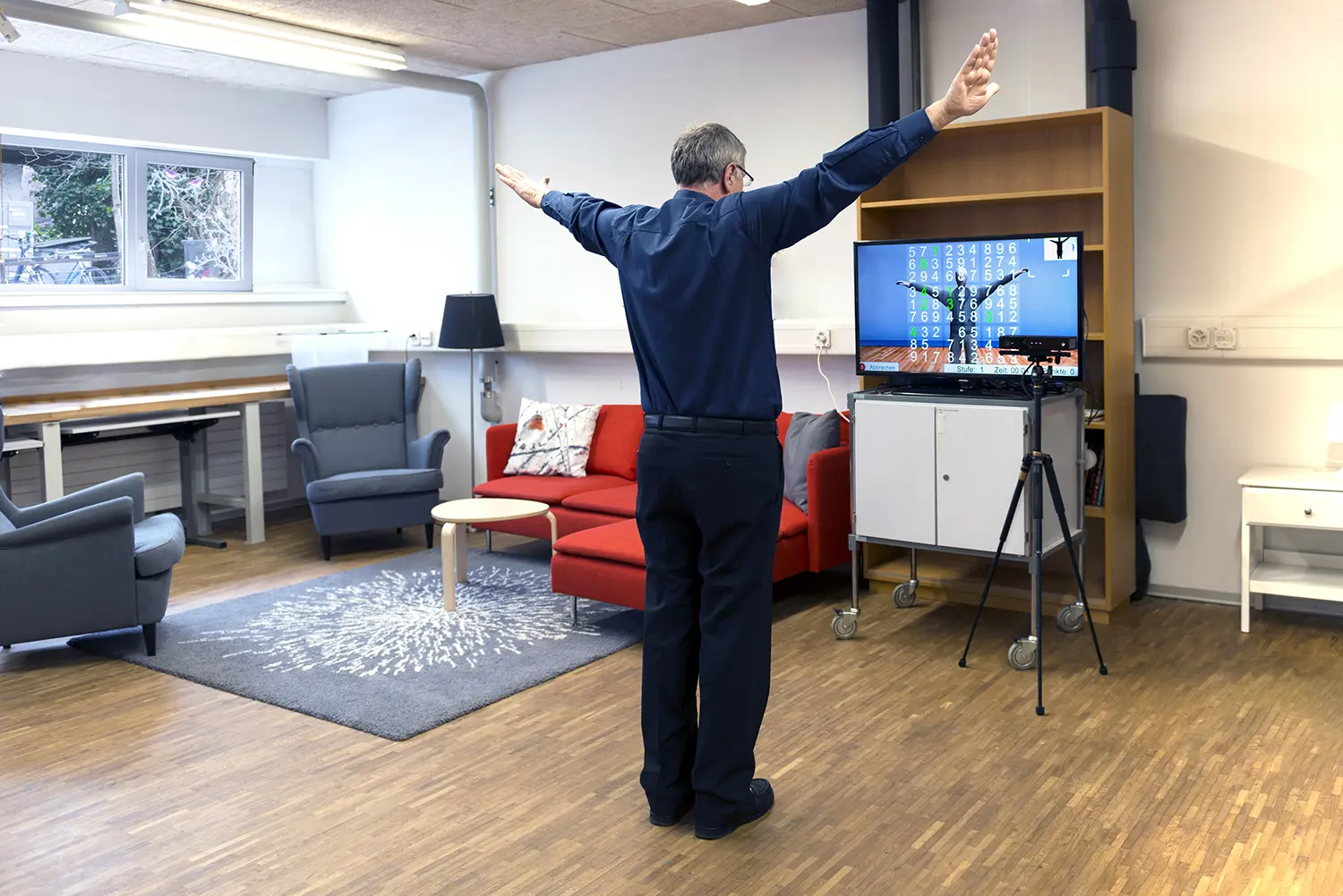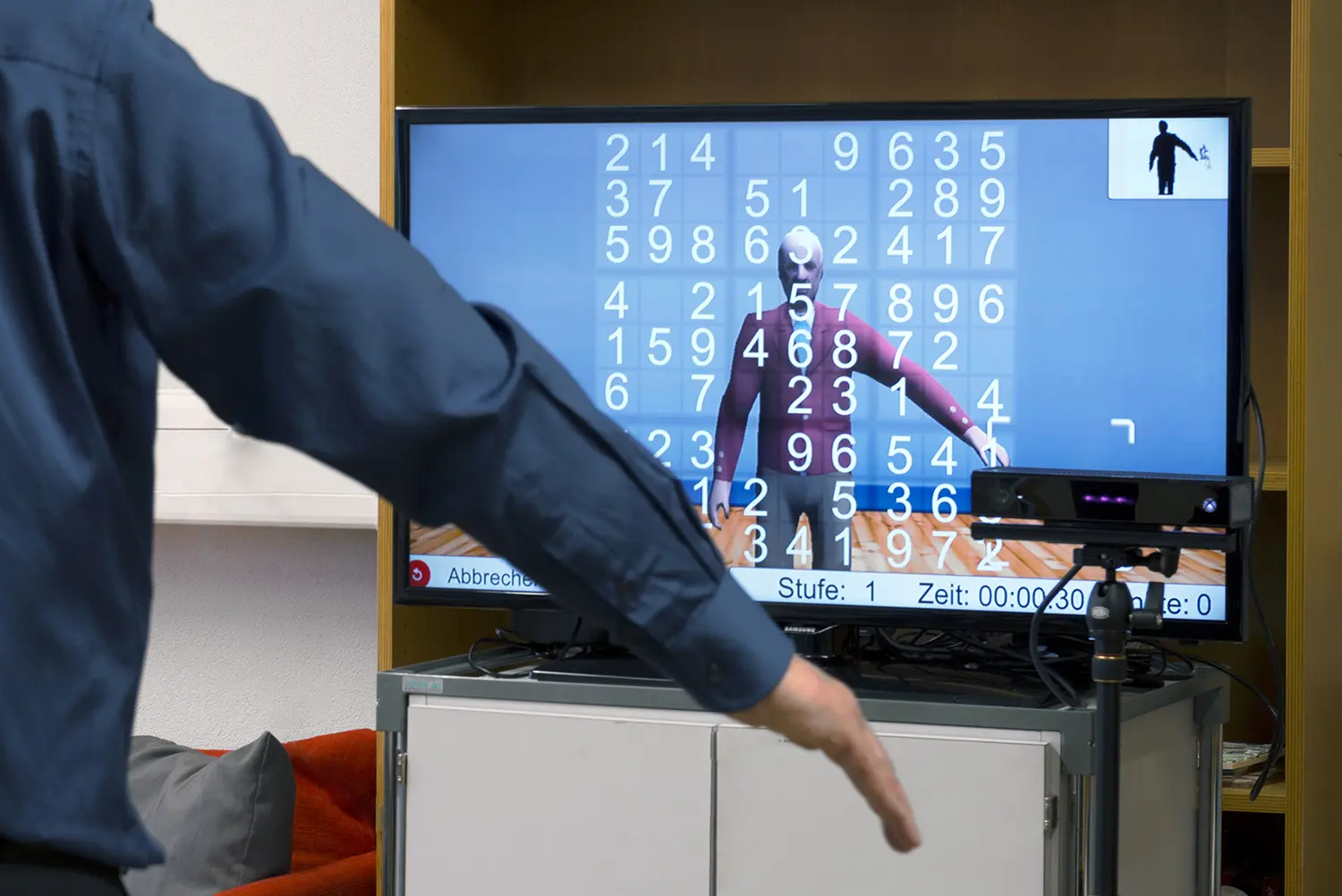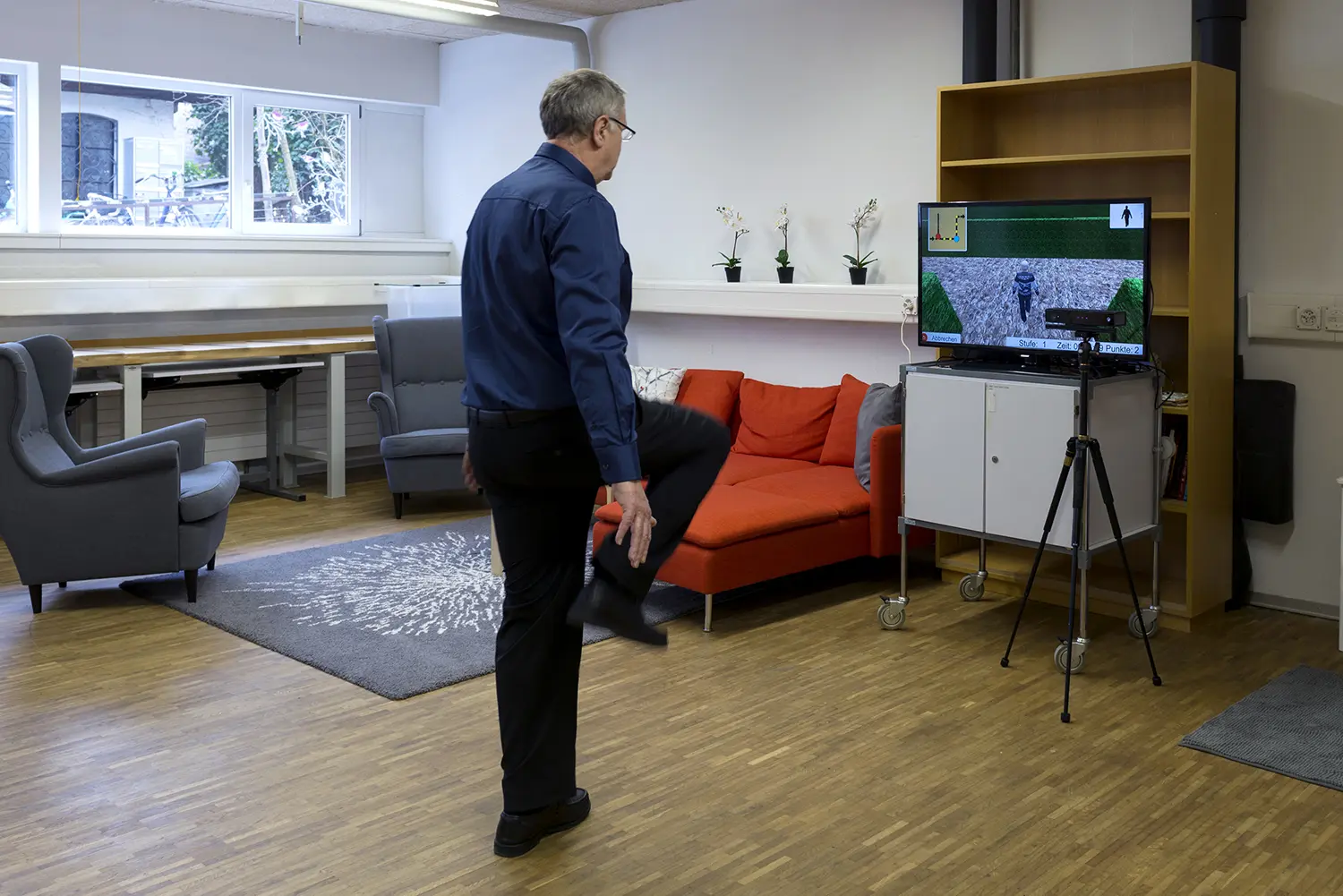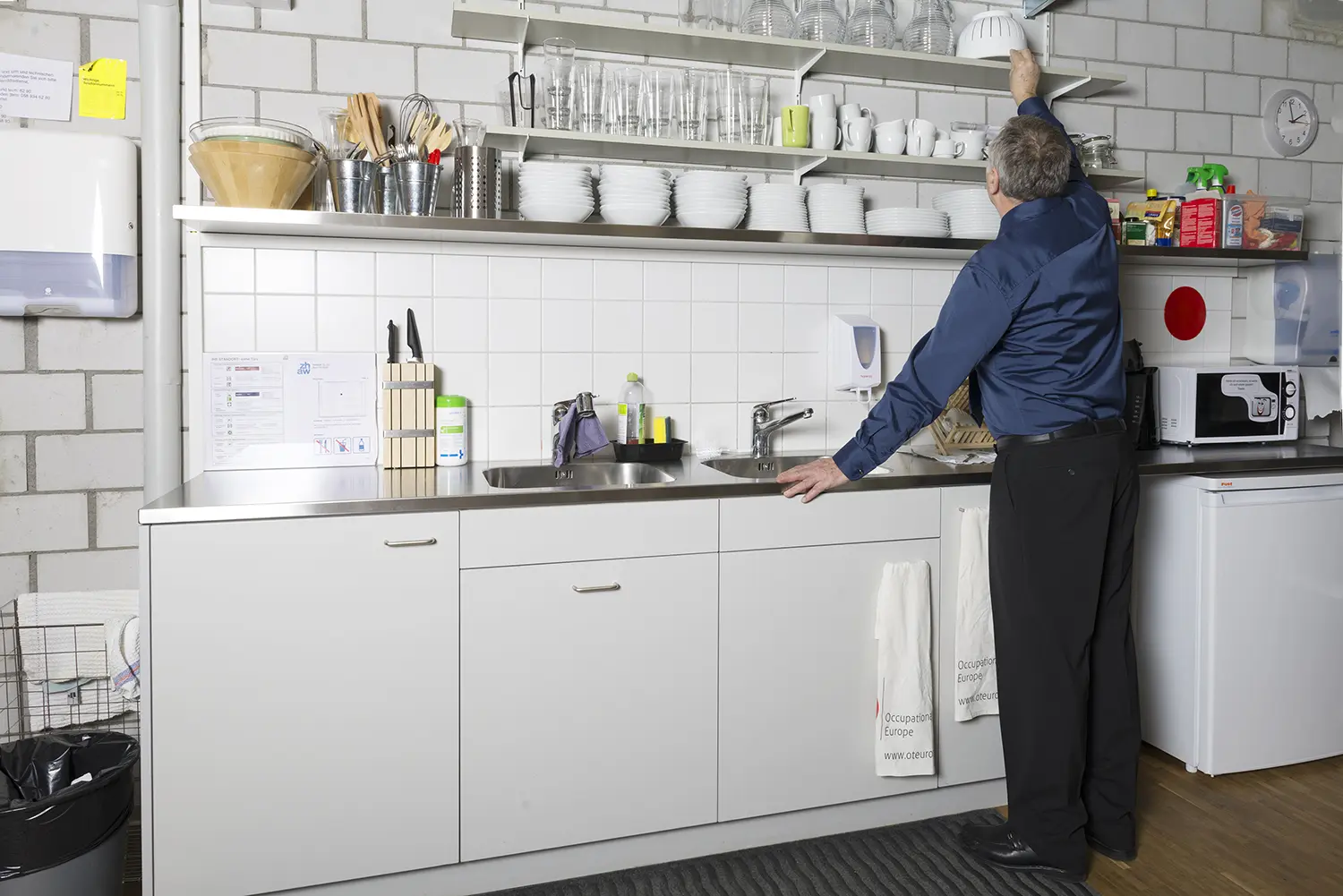Computer games for senior citizens: playful ways of keeping fitter in old age
Everyday activities like dressing ourselves, shopping or cooking tend to become more challenging with increasing age. Yet when such activities are no longer a matter of course, how can older people maintain their independence in everyday life? Researchers at the ZHAW and their international partners interviewed older people about their needs and developed interactive training games. The stamina of the test persons improved significantly.
For older people to remain living in their habitual environments despite physical limitations is often only possible through the support of relatives. New technologies also have the ability to enhance the quality of life and contribute to independent lifestyles. However, for such technologies to be understood and accepted by the older generation, they must be geared to the needs of elderly users.
Enhancing muscular strength, physical endurance and coordination
Researchers in the EU funded project "WeTakeCare" investigated the potential of new technologies and developed computer-based training games aimed at promoting physical activity among older people, thereby enhancing their autonomy. Older people and their relatives were involved at an early stage in the project to evaluate the difficulties older people encounter in everyday life and to explore their needs in relation to computer games.
"As older people frequently encounter problems with everyday activities such as dressing themselves, prolonged walking and reaching objects on higher cabinet shelves, the training games were developed to specifically train those basic physical functions that enable these movements", explains Silke Neumann, occupational therapy researcher at the ZHAW. By playing three-dimensional Sudoku puzzles, older people can exercise the mobility and strength of their arms and shoulders. The labyrinth game prompts people to walk vigorously through changing garden scenarios to exercise muscular strength, endurance and balance. Gamers can also improve their memory and agility of the lower extremities in the sitting dance game. Additionally, the "WeTakeCare" software provides short-term video clips on strategies for handling daily life activities, including aids and appliances that help achieve greater autonomy and mobility. Even the caregiving relatives receive exercise and nutrition tips to ensure they take care of their own health.
The training games underwent crucial testing for three months with older people in the home environment. It became clear that muscular strength and stamina of the test persons had improved significantly. "The exercises did me good. I even continued doing them while on a cruise ship without the aid of a computer or a tablet", commented a female test participant.
Older people define how games have to function
Based on the user needs data collected, the games interface has been provided with user-friendly functions. Users see themselves on the TV, PC or tablet screen as avatars which mirror their movements. For superior visibility, contrasts in the graphs are very high, while the large control buttons are coloured blue, yellow, purple and black as surveys showed that senior citizens rejected the signal colours red and green. Also, at the request of the users, a comic figure guides them through the game and offers new ideas for coping with everyday life and provides expert-vetted home safety tips. The software is TV, PC or tablet compatible.
Activation rather than information
The "WeTakeCare" software adopts an activity-based approach and has been developed in close cooperation with the user groups directly involved. If older people are able to maintain their autonomy through the playful training, this will also help ease the burden of caregiving relatives", according to Silke Neumann who explained the added value of the software.
International collaboration
The interdisciplinary research project "WeTakeCare" is embedded in the EU programme "Active and Assisted Living (AAL)" and funded by the State Secretariat for Education, Research and Innovation SERI, the European Commission and the Spanish Ministry of Industry, Energy and Tourism. The research partner of our Institute of Occupational Therapy at the ZHAW is the Instituto de Biomecánica in Valencia. The Spanish company CPMTI was responsible for the web applications and the German partner Kaasa Health for developing the games. It is planned, to bring the system to market maturity within the next three years.
Contact person
ZHAW -Zurich School of Health Professions, Institute of Occupational Therapy
Silke Neumann, telephone +41 (0) 58 934 49 76, email silke.neumann@zhaw.ch
José Santos, Head of Communications, ZHAW -Zurich School of Health Professions
telephone +41 (0) 58 934 63 84, email jose.santos@zhaw.ch




